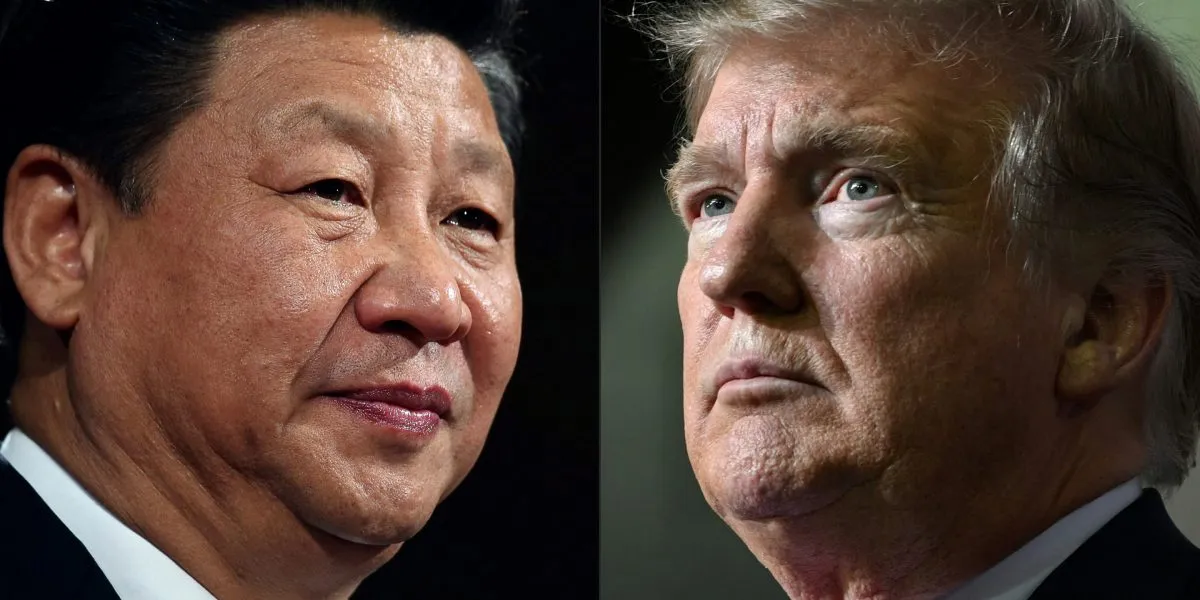
In a bold maneuver, President Donald Trump recently announced a striking move to impose an additional 100% tariff on Chinese goods, alongside software restrictions targeting China, which currently dominates over 90% of the global market for processed rare earths and rare earth magnets. This decision marks a significant escalation in trade tensions between the two economic giants. However, Trump has hinted at the possibility of even harsher measures, indicating that the United States possesses a monopoly over certain critical sectors that could be leveraged against China.
In a post on Truth Social, Trump expressed his readiness to deploy stronger tactics, stating, “I have just not chosen to use them, there was never a reason for me to do so — UNTIL NOW!” This assertive rhetoric suggests a willingness to explore all options in the ongoing trade dispute, although subsequent commentary indicates a softening stance, acknowledging that such tariffs may not be sustainable in the long term.
Despite the dramatic tariff announcement, Wall Street analysts have largely dismissed Trump's threats as strategic posturing aimed at gaining leverage in future negotiations. It appears that the financial markets view these actions as part of a broader strategy rather than a definitive shift in U.S. trade policy. Meanwhile, the White House has confirmed that a pivotal meeting between Trump and Chinese President Xi Jinping is scheduled for later this month, coinciding with a regional economic conference in South Korea.
China's recent restrictions on rare earth exports have raised alarms among observers, many of whom believe these actions could potentially hinder global economic participation. Given the essential role that rare earth minerals play in a plethora of technologies, concerns about the ramifications of such restrictions are widespread.
On closer examination, analysts at Capital Economics have suggested that China’s recent policies may not be as expansive as initially believed. In a note, China economics head Julian Evans-Pritchard and economist Leah Fahy posited that China's actions appear to be a calculated effort to bolster its negotiating position, particularly in light of the U.S. reluctance to further roll back tariffs.
“Whatever the motivation, China’s recent actions were a bit of a gamble, and there is a risk that they could backfire,” the analysts noted. They outlined potential avenues for U.S. retaliation that could inflict further damage on the Chinese economy, including leveraging U.S. control over the commercial aviation supply chain by restricting exports of critical components or even entire aircraft.
Furthermore, an overwhelming majority of laptops and PCs in China are still dependent on the Windows operating system, which could present another opportunity for the U.S. to exert pressure. Trump could potentially compel Microsoft to halt sales and updates in China, leading to significant security vulnerabilities. While China has alternatives, the precedent set by Huawei indicates that such a transition would likely diminish the global appeal of Chinese-branded devices.
Perhaps the most pressing concern for China revolves around the software utilized in advanced manufacturing. Western companies currently dominate over 70% of the Chinese market for chip design software, making any U.S. restrictions particularly consequential.
Moreover, Trump could impose expanded export controls that would further hinder Chinese tech companies and manufacturers. Despite existing restrictions on advanced technologies, China remains heavily reliant on chips and chipmaking tools from the U.S. and its allies. This dependence presents an opportunity for the U.S. to exert additional economic pressure.
In terms of global finance, the U.S. holds a significant advantage that could be exploited through sanctions aimed at Chinese firms. Freezing dollar-denominated assets and limiting access to the SWIFT payment system could isolate China from the international financial community. Additionally, Washington might encourage its allies to follow suit with their own trade restrictions, complicating China's ability to compensate for reduced shipments to the U.S.
In light of these developments, analysts at Capital Economics have cautioned that hawkish advisors on both sides of the Pacific may seize this opportunity to advocate for a deeper U.S.-China decoupling. The potential outcomes range from returning to a precarious trade truce to a more severe isolation of China from Western markets and technologies.
As the situation evolves, it remains critical to monitor the impacts of these trade policies on both the U.S. and Chinese economies, as well as their implications for global trade dynamics.